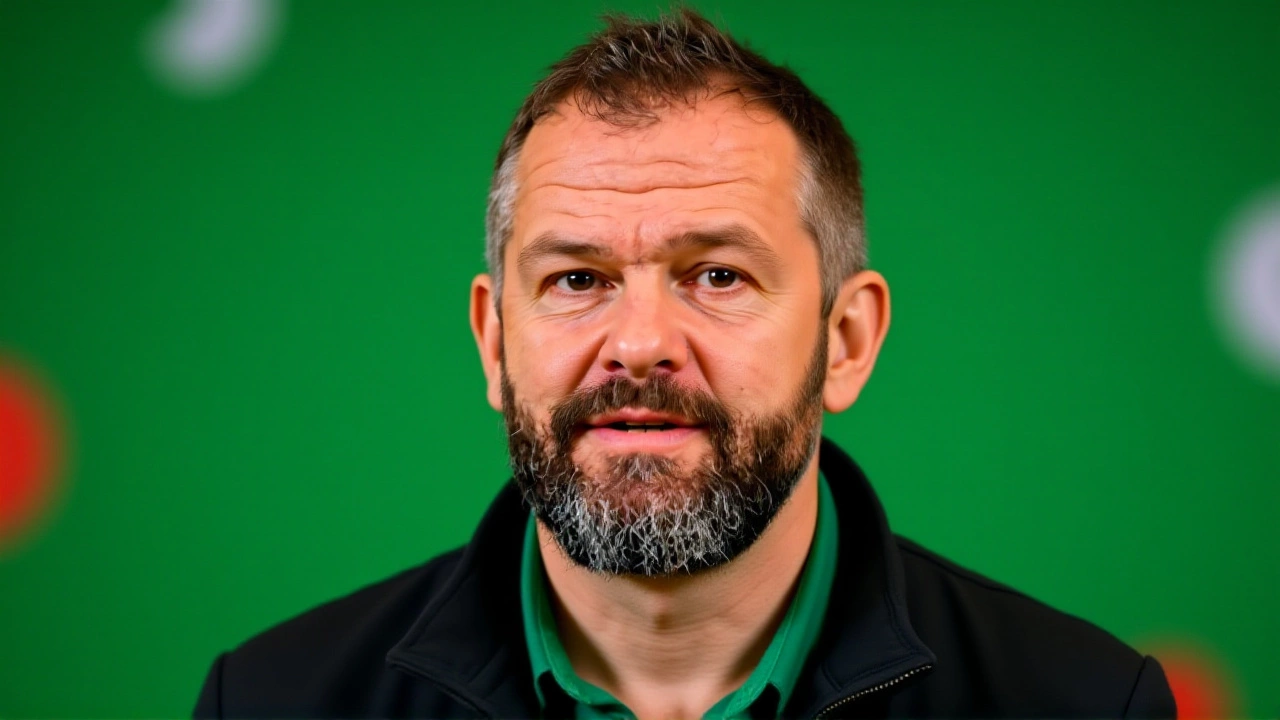The Springboks didn’t just win a rugby match on Saturday — they exorcised a ghost. On November 22, 2025, at Aviva Stadium in Dublin, the South Africa national rugby union team beat Ireland 24-13, finally breaking a 13-year winless streak in the Irish capital. The last time they’d won here? November 10, 2012. Back then, Jacobus ‘Koos’ de Wet was still kicking for the Boks. This time, it was chaos, grit, and a dominant scrum that did the job.
A Match That Unraveled
It started with Ireland looking sharp. Within 60 seconds, fly-half Sam Prendergast missed a pass, then stumbled on a run. But South Africa seized the moment. In the third minute, centre Damian de Allende burst through the Irish line like a freight train, drawing two defenders and slipping a pass to full-back Damian Willemse, who finished with a breathtaking ‘superman’ dive over the line. The Aviva fell silent. The Boks were up 7-0. Then came the unraveling. In the 17th minute, Ireland captain James Ryan received a red card for a dangerous clearout in a ruck — a decision that shifted everything. Suddenly, Ireland were down to 14. And it got worse. By the 58th minute, Paddy McCarthy and Andrew Porter had joined Tadhg Beirne and Ryan Baird in the sin bin, leaving Ireland with just 13 men on the field. Four yellow cards. One red. A disciplinary nightmare.The Scrum That Won It
While Ireland’s discipline collapsed, South Africa’s scrum became a machine. They won six consecutive penalties at the set-piece — six. The third consecutive infringement in the 35th minute triggered a penalty try. No try-line charge. Just a whistle. The referee pointed to the posts. 19-7 at halftime. The crowd booed. The Irish players looked stunned. How did we get here? Ireland fought back. Hooker Dan Sheehan powered over from a rolling maul in the 25th minute, and Prendergast converted. Then, in the 48th minute, another Prendergast penalty cut the gap to 19-10. For a few minutes, Dublin dared to dream. But the Springboks weren’t done. Scrum-half Cobus Reinach sniped from a lineout drive, and centre Sacha Feinberg-Mngomezulu finished off a slick backline move in the 67th minute. Two more tries. Two more points. Game over.Discipline, Defense, and Desperation
Ireland’s resilience was admirable. Full-back Jordan Larmour made two last-ditch tackles inside his own 22, one of them a textbook shoulder tackle on Grant Williams that saved a certain try. But the sin bins kept filling. And when Williams got his own yellow in the 75th minute, South Africa’s lead was already too big. The final five minutes were pure Irish desperation — flanker Josh van der Flier nearly crossed, but the Bok defense held like stone. The stats told the story: Ireland conceded 17 scrum infringements. South Africa, just five. The Springboks won 6 penalties from the scrum alone. That’s not luck. That’s dominance. And when you’re playing against a team that’s won 11 of their last 12 Tests, you don’t get away with that.
What This Means
This wasn’t just a win. It was a statement. Ireland had beaten the Springboks in three straight Tests since 2022 — 29-17, 19-16, 25-24. They were the better team on paper. But Saturday showed that rankings mean little when discipline breaks down. The Springboks are still World Rugby’s top-ranked side at 94.38 points — just ahead of Ireland’s 91.65. But this win? It reasserted their mental edge. Head coach Rassie Erasmus said it best in the post-match press conference: “Although the Boks’ performance wasn’t perfect, we were pleased to break our 13-year winning drought in Dublin. Glad we got the monkey off our backs.” The monkey’s gone. And now, the Boks turn their eyes to Twickenham Stadium in London, where they’ll face England on November 29, 2025. That’s the real test. But if they can win in Dublin after all that — they can win anywhere.Behind the Numbers
- 13 years: Time since Springboks last won in Dublin (Nov 10, 2012)- 4 yellow cards: Issued to Irish players (Porter, McCarthy, Beirne, Baird)
- 1 red card: James Ryan (17th minute)
- 6 scrum penalties: Won by Springboks, leading to penalty try
- 17 scrum infringements: Conceded by Ireland
- 94.38 points: Springboks’ World Rugby ranking (Nov 22, 2025)
- 24-13: Final score — South Africa’s first win in Dublin since 2012
Frequently Asked Questions
Why was this win so significant for the Springboks?
This was South Africa’s first victory in Dublin since 2012 — ending a 13-year drought and reversing a recent trend where Ireland had won all three meetings from 2022 to 2024. Breaking that streak wasn’t just about pride; it proved the Springboks could win under pressure in one of rugby’s toughest away venues, reinforcing their status as world number one.
How did Ireland’s disciplinary issues impact the match?
Ireland’s four yellow cards and one red card — including captain James Ryan’s dismissal — left them with as few as 13 players on the field. This forced them into defensive survival mode, nullifying their attacking momentum and giving the Springboks repeated scrum opportunities. The cumulative effect was a loss of structure and morale, which South Africa exploited ruthlessly.
What role did the scrum play in South Africa’s victory?
The Springboks’ scrum was the match’s defining feature. They won six consecutive penalties at the set-piece, culminating in a penalty try awarded in the 35th minute. Ireland conceded 17 scrum infringements — more than triple South Africa’s five. This wasn’t just about points; it drained Ireland’s energy and confidence, turning a physical battle into a psychological one.
How does this affect the World Rugby rankings?
The win solidified the Springboks’ position at number one with 94.38 points, just ahead of Ireland’s 91.65. While rankings don’t change immediately after one match, this result strengthens South Africa’s claim as the most consistent team globally, especially given Ireland’s recent dominance in the fixture. A win over England next could widen the gap further.
What’s next for both teams?
South Africa faces England at Twickenham Stadium on November 29, 2025 — their final match on the 2025 Castle Lager Outgoing Tour. Ireland, meanwhile, will regroup ahead of the 2026 Six Nations, with questions swirling about their discipline and leadership. Coach Andy Farrell has work to do — and fast.
Was this match a turning point in the Ireland-South Africa rivalry?
Absolutely. Ireland’s three straight wins from 2022–2024 had shifted the psychological balance. This result flips it. The Springboks showed they can win in Dublin without playing their best rugby — a sign of champions. For Ireland, it’s a sobering reminder that dominance is fleeting. The next meeting — likely in 2026 — will be even more intense.

